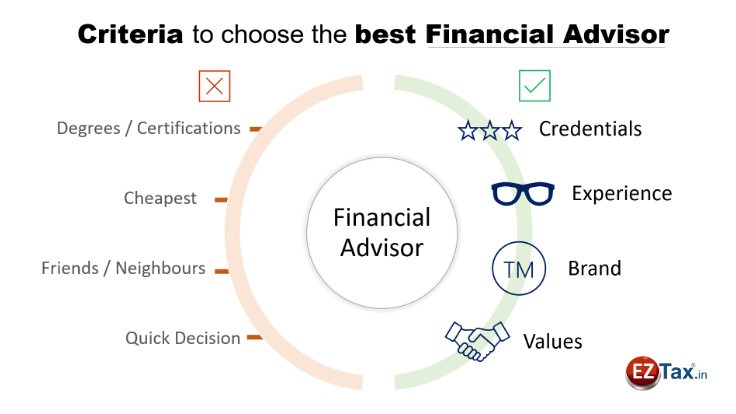Introduction
When it comes to managing your finances, the right guidance can make all the difference. Whether you’re planning for retirement, saving for your children’s education, or simply trying to grow your wealth, working with a financial advisor can provide you with the expertise and personalized strategies you need. However, choosing the right financial advisor is crucial, and with so many options available, it can be a daunting task. This comprehensive guide will walk you through everything you need to know to find the best financial advisors to help you achieve your financial goals.
Understanding What Financial Advisors Do
Before diving into the process of finding the right advisor, it’s important to understand what a financial advisor does. In essence, a financial advisor helps individuals and businesses plan their financial futures by providing guidance on investments, savings, tax strategies, retirement planning, and more.
There are different types of financial advisors, each with their own expertise and areas of focus. Some specialize in retirement planning, while others focus on investments, estate planning, or tax management. It’s crucial to understand what type of advisor aligns best with your financial needs.
Types of Financial Advisors
- Certified Financial Planners (CFPs): These professionals are trained to assist with overall financial planning, including investments, insurance, retirement, taxes, and estate planning. They have earned the CFP designation, which requires extensive training, examinations, and adherence to ethical standards.
- Investment Advisors: These advisors specialize in helping you grow your investments. They typically help you choose the best investment strategy based on your risk tolerance, financial goals, and market conditions.
- Robo-Advisors: If you’re looking for a low-cost option, robo-advisors can be an excellent choice. These platforms use algorithms to manage your investment portfolio based on your preferences, with minimal human interaction.
- Retirement Planners: These advisors specialize in helping clients plan for retirement. They focus on retirement accounts, Social Security strategies, and other retirement-related decisions.
- Estate Planners: Estate planners help ensure that your assets are distributed according to your wishes after your death. They may assist with creating wills, trusts, and navigating complex estate tax laws.
What to Expect from a Financial Advisor
A financial advisor should not only provide you with investment strategies but also offer holistic financial advice based on your life stage and goals. They should take the time to understand your personal financial situation and help you create a roadmap to reach your objectives. This involves ongoing conversations about your goals, progress, and any adjustments needed to stay on track.
The Importance of Finding the Right Financial Advisor
Choosing the best financial advisors is more than just about selecting someone with the right qualifications. It’s about finding someone who understands your unique financial situation, goals, and values. Working with the right advisor can lead to better investment returns, smoother financial transitions, and greater peace of mind.
On the other hand, working with an advisor who isn’t the right fit can lead to misunderstandings, poor financial decisions, and missed opportunities. Whether you’re just starting your financial journey or managing a portfolio worth millions, selecting an advisor that matches your needs is crucial to your financial success.
How to Choose the Best Financial Advisors for Your Goals
Choosing the right financial advisor isn’t a one-size-fits-all process. It requires careful research and consideration of several factors to ensure you’re partnering with someone who will work in your best interest. Here are some key steps to help you make an informed decision.
1. Assess Your Financial Needs
The first step in choosing the best financial advisor is to assess your financial needs. Are you looking for someone to help you invest for retirement? Do you need assistance with tax planning or estate management? Identifying your financial goals will help you narrow down your search to advisors who specialize in those areas.
- If your primary concern is retirement, look for advisors who have experience in retirement planning and knowledge of retirement accounts like IRAs, 401(k)s, and pensions.
- If you want to grow your wealth through investments, look for an investment advisor with a proven track record in managing portfolios similar to yours.
- If you have complex financial situations, such as owning a business or managing significant assets, a certified financial planner (CFP) might be the best choice.
2. Check Their Credentials and Qualifications
It’s crucial to verify that any potential financial advisor has the proper credentials and qualifications to meet your needs. The financial industry is full of designations and certifications, and understanding what each one represents can help you make a more informed choice.
- Certified Financial Planner (CFP): The CFP certification is one of the most widely recognized and respected designations in the financial industry. It ensures that the advisor has met stringent education, experience, and ethical standards.
- Chartered Financial Analyst (CFA): A CFA is a professional designation that focuses on investment management. If your primary concern is investment advice, you may want to consider an advisor with this certification.
- Registered Investment Advisor (RIA): RIAs are registered with the SEC or state regulators and are held to a fiduciary standard, meaning they must act in your best interest.
3. Understand the Fee Structure
Financial advisors charge in a variety of ways, and understanding how an advisor earns their compensation can give you valuable insight into their approach to your finances. Here are some common fee structures:
- Fee-only Advisors: These advisors charge a flat fee or an hourly rate for their services. They do not receive commissions from the sale of financial products, which helps minimize conflicts of interest.
- Commission-based Advisors: These advisors earn a commission when they sell you financial products, such as insurance policies or mutual funds. While this fee structure can be less expensive upfront, it can sometimes lead to biased advice if the advisor is incentivized to recommend certain products.
- Fee-based Advisors: This is a hybrid model where advisors charge both a fee for their services and a commission on any products they sell. While this can offer a balanced approach, it’s important to ensure there’s no conflict of interest.
It’s important to fully understand how an advisor charges for their services, as this can impact the overall cost of working with them and may also influence the advice they give.
4. Review Their Investment Philosophy
Every financial advisor has a unique investment philosophy, and it’s essential to find one that aligns with your risk tolerance and financial goals. Some advisors take a more conservative approach, focusing on preserving wealth, while others may be more aggressive in seeking higher returns through riskier investments.
- If you’re a conservative investor, you might want an advisor who focuses on low-risk investments like bonds or dividend-paying stocks.
- If you’re comfortable with higher risk for the potential of greater returns, look for an advisor who is willing to explore more aggressive investment strategies.
During your initial meetings, ask about their approach to managing risk, diversifying portfolios, and adjusting investment strategies over time.
5. Conduct Interviews with Multiple Advisors
Once you’ve narrowed down your list of potential advisors, it’s time to schedule interviews. This is your opportunity to ask questions and assess whether an advisor is a good fit for your needs.
- Ask about their experience with clients in similar financial situations to yours.
- Inquire about their approach to managing financial goals and how they track progress over time.
- Discuss their communication style. Will they regularly update you on your portfolio? Are they available to answer questions when needed?
This conversation will also allow you to get a feel for the advisor’s communication style and personality, which is crucial when building a long-term relationship.
6. Check for Regulatory Compliance
It’s important to ensure that any financial advisor you’re considering is compliant with regulatory standards. Advisors are required to register with the SEC or state regulators, and they should be transparent about any disciplinary actions or complaints against them.
Check the advisor’s record through:
- FINRA’s BrokerCheck: This tool allows you to verify the advisor’s background, including any regulatory violations, complaints, or disciplinary actions.
- The SEC’s Investment Adviser Public Disclosure (IAPD): Use this to check the background of Registered Investment Advisors (RIAs).
Ensuring that your advisor is compliant with these regulations helps protect your investment and provides peace of mind that you’re working with a trustworthy professional.
Conclusion
Choosing the best financial advisors to help you achieve your financial goals is an important decision that requires careful consideration. By assessing your financial needs, checking credentials, understanding fee structures, and conducting interviews, you can find an advisor who will work in your best interest and help you navigate the complexities of financial planning. Remember, the right advisor will not only help you grow your wealth but also provide peace of mind as you work toward your long-term financial goals.









